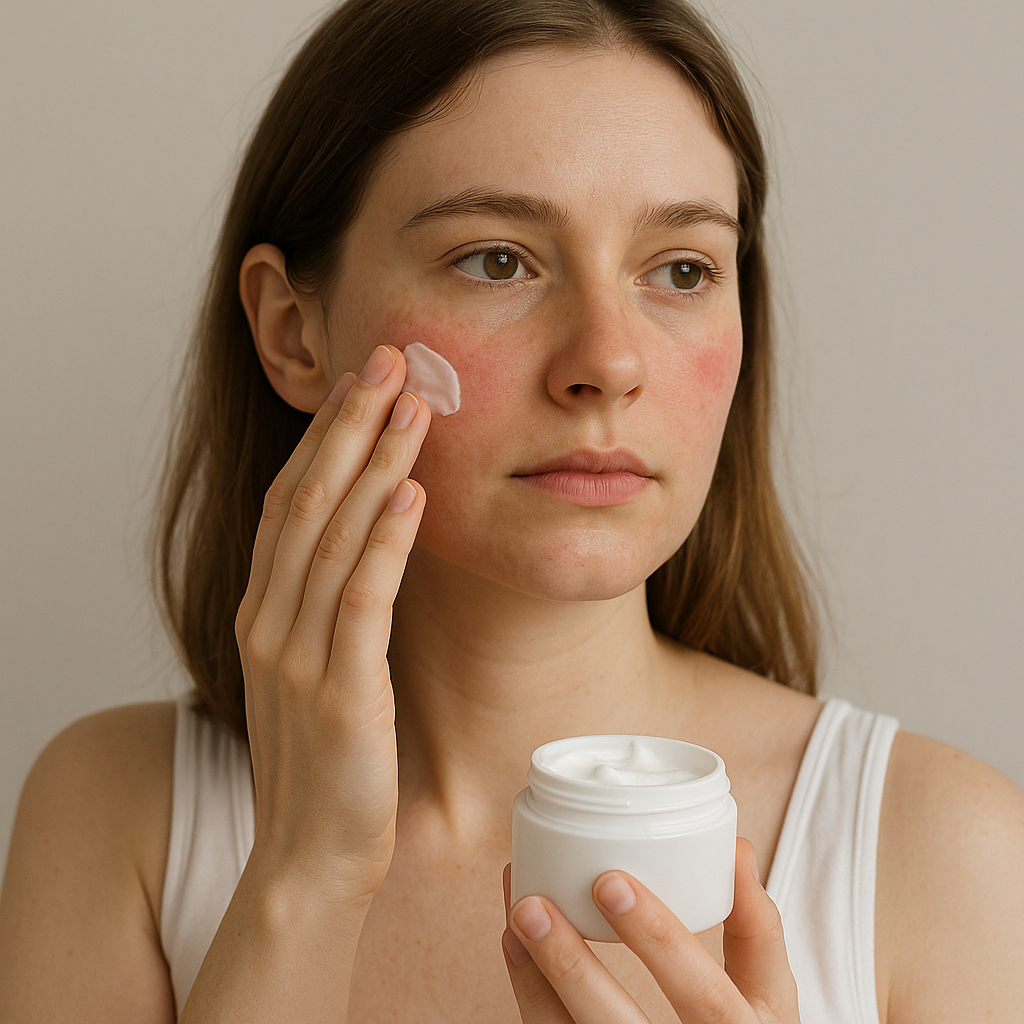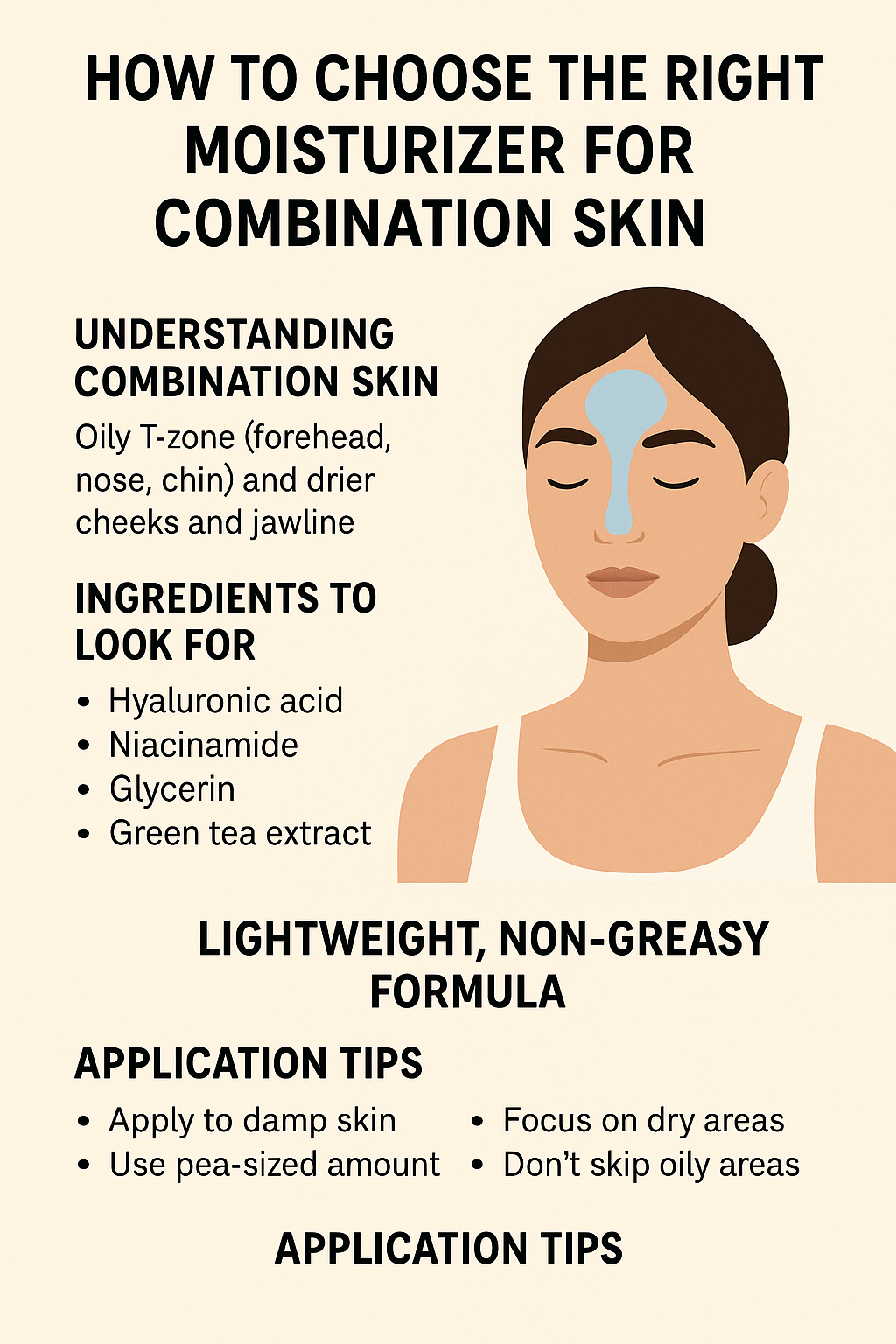Best Moisturizers for Sensitive Skin: Soothing Hydration Without Irritation
Sensitive skin often feels like a mystery. One day it’s calm, the next it’s red, itchy, and uncomfortable. Finding the right moisturizer is key to managing sensitivity, but with thousands of options available, how do you know what’s truly safe?
In this expert guide, we’ll explore how to choose a moisturizer specifically designed for sensitive skin, which ingredients to embrace (and which to avoid), and we’ll share dermatologist-approved recommendations tailored to various needs—from dryness to redness.
Why Sensitive Skin Requires Special Moisturizers
Sensitive skin reacts more strongly to external and internal triggers—like weather, stress, certain ingredients, and even water temperature. It’s often characterized by:
- Redness or blotchiness
- Burning or stinging sensations
- Flaking or tightness
- Increased vulnerability to environmental aggressors
An effective moisturizer for sensitive skin must do more than hydrate. It needs to:
- Reinforce the skin barrier
- Reduce inflammation and redness
- Avoid known irritants and allergens
- Deliver calming, protective benefits
We’ve already covered how to build a gentle skincare routine in our guide to skincare for sensitive skin. Now let’s focus on moisturizing specifically.
Key Ingredients to Look For
When choosing a moisturizer, focus on formulas labeled as “fragrance-free,” “hypoallergenic,” and “non-comedogenic.” Prioritize ingredients that hydrate while calming inflammation:
- Ceramides: Help restore the skin’s protective barrier
- Hyaluronic Acid: Draws water into the skin for deep hydration
- Colloidal Oatmeal: Soothes itching and irritation
- Panthenol (Vitamin B5): Moisturizes and supports healing
- Aloe Vera: Calms redness and delivers lightweight hydration
- Centella Asiatica: Reduces inflammation and enhances recovery
- Squalane: Lightweight, non-irritating emollient
- Niacinamide: Strengthens the skin and reduces sensitivity
Ingredients to Avoid
Certain ingredients are notorious for aggravating sensitive skin. Even if a product is marketed as gentle, always read the label. Avoid:
- Fragrance or parfum: The leading cause of cosmetic-related skin irritation
- Essential oils: Even natural extracts like lavender or citrus can be problematic
- Alcohol (denatured): Dries out and disrupts the skin barrier
- Harsh preservatives (e.g., methylisothiazolinone): Known sensitizers
- Sulfates: Often found in cleansers but sometimes hidden in moisturizers
Types of Moisturizers for Sensitive Skin
The best moisturizer for you depends on your skin’s current condition and environment. Here are dermatologist-approved formats:
- Creams: Rich, nourishing, and often ideal for dryness or cold weather
- Lotions: Lighter than creams, good for daily use
- Gels: Best for oily but sensitive skin types
- Ointments: Heavy-duty hydration for compromised or very dry skin
- Barrier creams: Reinforce skin’s outer layer, ideal for skin with eczema or redness
Application Tips for Sensitive Skin
How you apply moisturizer matters as much as what you apply.
- Apply to clean, damp skin to lock in hydration
- Use fingertips to gently press (not rub) the product in
- Start with a small amount to test tolerance
- Don’t layer too many actives—keep the routine simple
- Reapply during the day if your skin feels tight or itchy
If you also struggle with redness and irritation, our upcoming guide on how to treat redness and irritation will dive deeper into recovery strategies.
Top Moisturizer Picks for Sensitive Skin (2025)
These products have earned praise from dermatologists and consumers for their safety and effectiveness on sensitive skin:
1.
La Roche-Posay Toleriane Double Repair Face Moisturizer
Formulated with niacinamide, ceramides, and thermal spring water, this cream is both soothing and barrier-repairing.
2.
CeraVe Moisturizing Cream
Fragrance-free, packed with ceramides and hyaluronic acid—ideal for dry, sensitive skin.
3.
Vanicream Moisturizing Cream
Free of dyes, fragrance, parabens, and formaldehyde. Trusted by dermatologists for allergy-prone skin.
4.
Aveeno Calm + Restore Oat Gel Moisturizer
Contains prebiotic oat and feverfew extract to calm and hydrate.
5.
Avene Skin Recovery Cream
Minimal ingredients, ideal for skin recovering from overuse of actives or treatments.
If you’re dealing with both sensitivity and aging concerns, check our upcoming post on anti-aging skincare tipstailored for sensitive skin.
Myths About Moisturizing Sensitive Skin
Myth 1: “If it burns, it must be working.”
No. Burning or tingling is a sign of irritation, not efficacy.
Myth 2: “Natural products are always safe.”
Not necessarily. Many natural ingredients (like citrus oils or mint) are highly sensitizing.
Myth 3: “Sensitive skin doesn’t need moisturizer daily.”
On the contrary—consistent hydration helps prevent flare-ups.
Conclusion
Moisturizing sensitive skin requires intention and knowledge. Look for products with calming, proven ingredients and steer clear of unnecessary additives. Whether your skin is dry, oily, or combination, there’s a formula out there that will protect without provoking a reaction.
Consistency is key—and always patch test new products.


